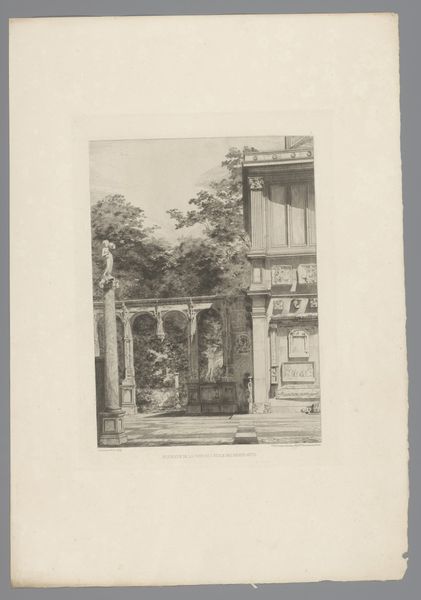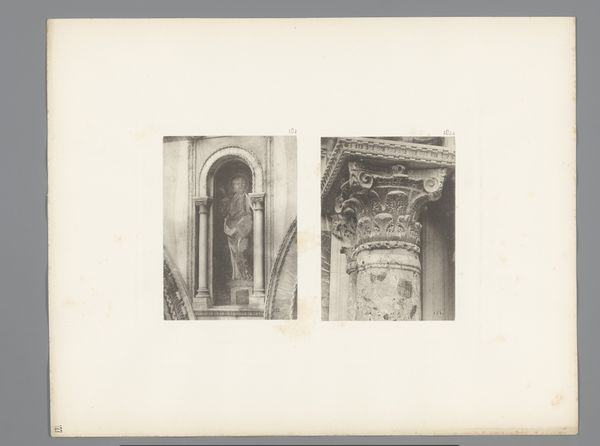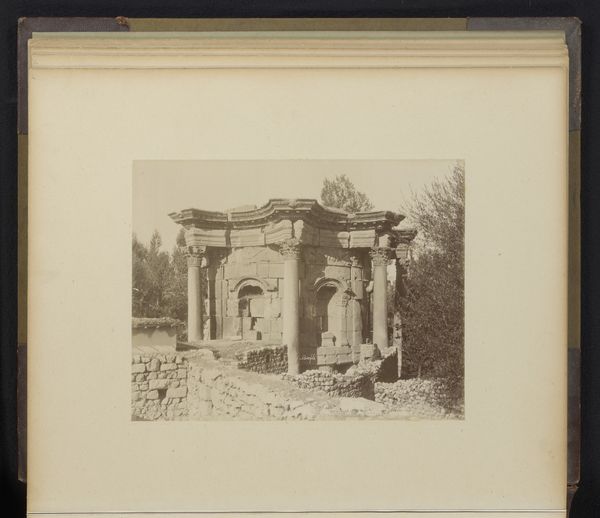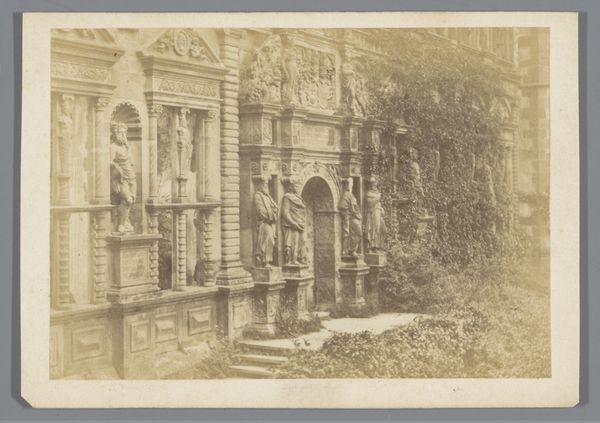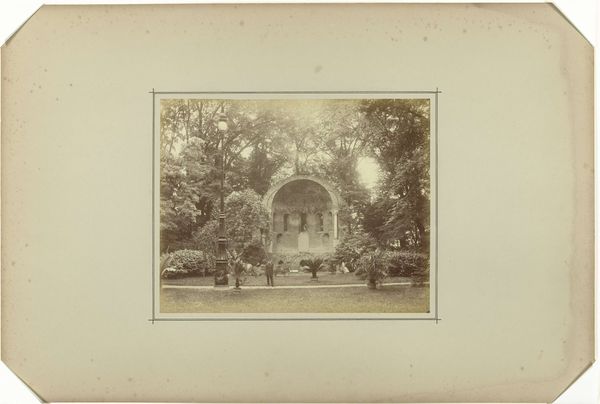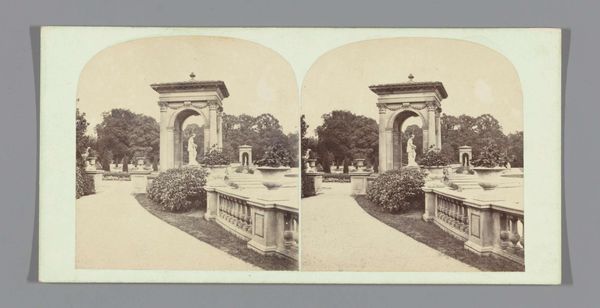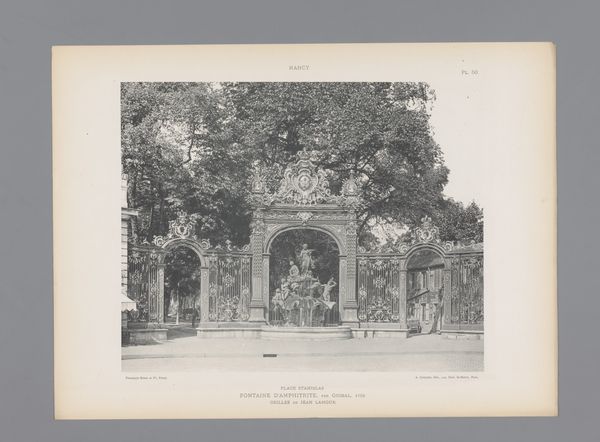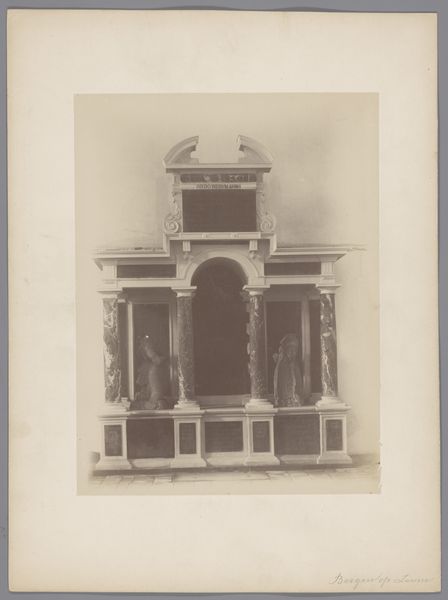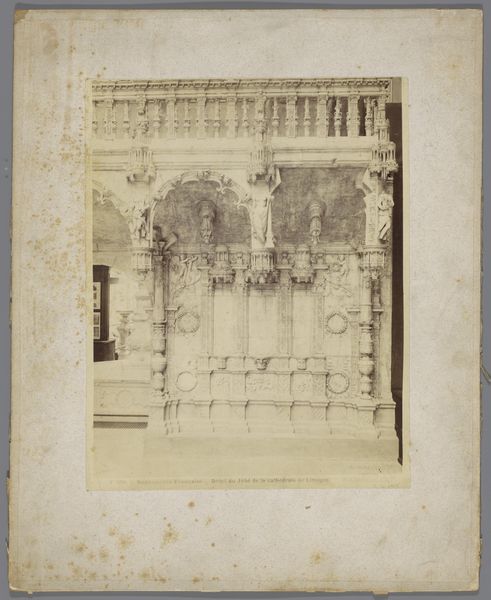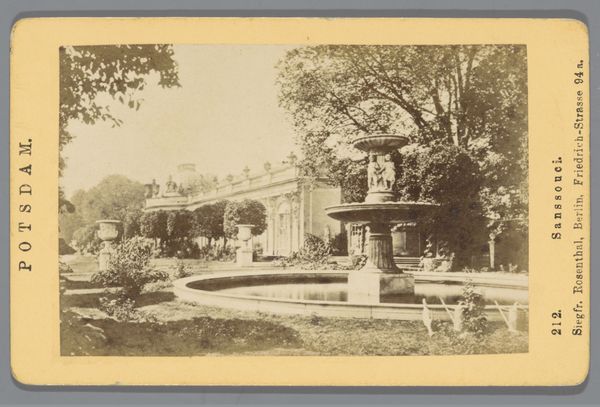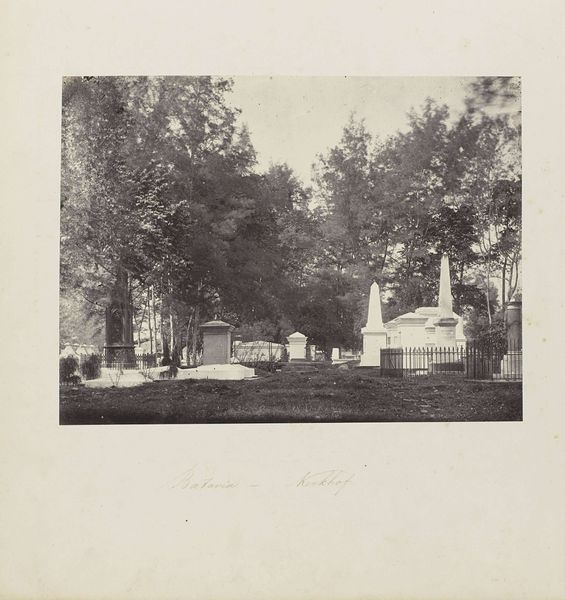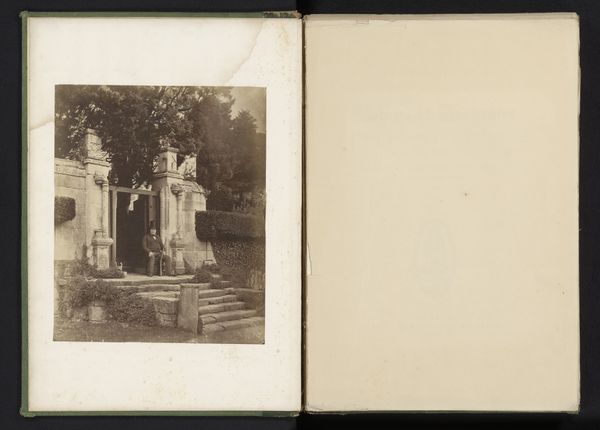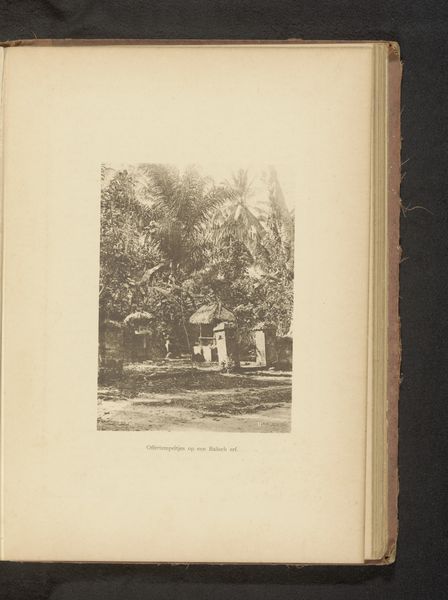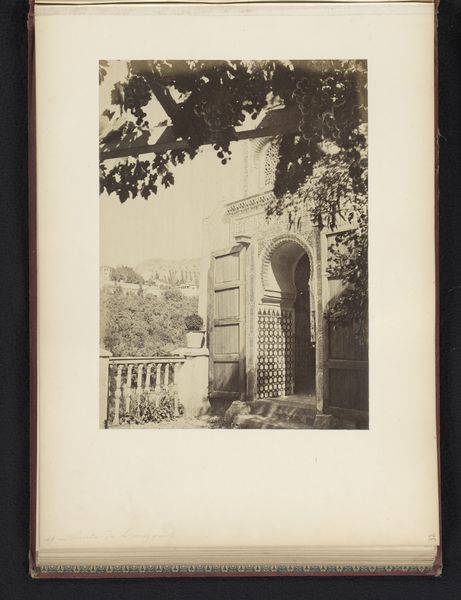
Fontein en een boog in een tuin (vermoedelijk) te Rome c. 1875 - 1900
0:00
0:00
photogram, print, photography, sculpture
#
photogram
# print
#
landscape
#
photography
#
sculpture
#
cityscape
#
watercolour illustration
Dimensions: height 193 mm, width 242 mm
Copyright: Rijks Museum: Open Domain
Editor: Here we have Gustave Eugène Chauffourier's photograph, "Fontein en een boog in een tuin (vermoedelijk) te Rome," or "Fountain and an arch in a garden (presumably) in Rome," circa 1875-1900. It's a print, made from a photogram. There's a certain faded grandeur to it all. What strikes you most about this photograph? Curator: The way the image showcases the material construction of leisure in the late 19th century is really fascinating. Consider the labor involved in quarrying the stone for both the fountain and the arch, the plumbing required for the fountain itself. Editor: It’s easy to overlook that aspect, seeing it simply as a beautiful garden scene. Curator: Precisely! It encourages us to think about the class dynamics embedded in this constructed landscape. These gardens were meant for display, demonstrations of wealth through manipulated natural resources. Notice the careful arrangement—nothing is accidental. Every tree, every stone, placed intentionally. How does this impact the idea of nature that the artist conveys? Editor: I suppose it becomes less about wilderness and more about curated experience… Curator: Exactly! And think about the social implications. This photograph, a reproducible print, makes that experience available in a way, democratizing access. The viewer is brought into a controlled vision of nature but doesn’t participate in that lifestyle. How does mass reproducibility then shape notions of both "art" and luxury itself? Editor: I never considered how the very materials and the means of making this image affect how we experience what is displayed! Thank you for your enlightening input! Curator: The materiality transforms an understanding. Thank you.
Comments
No comments
Be the first to comment and join the conversation on the ultimate creative platform.
